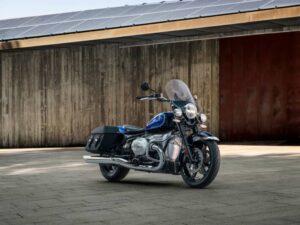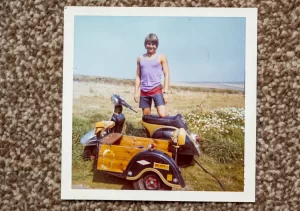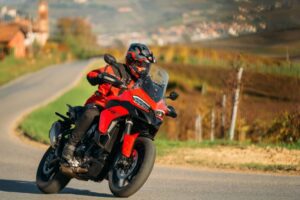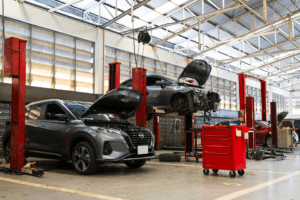The mod revival, scooters and a melting pot of cultures
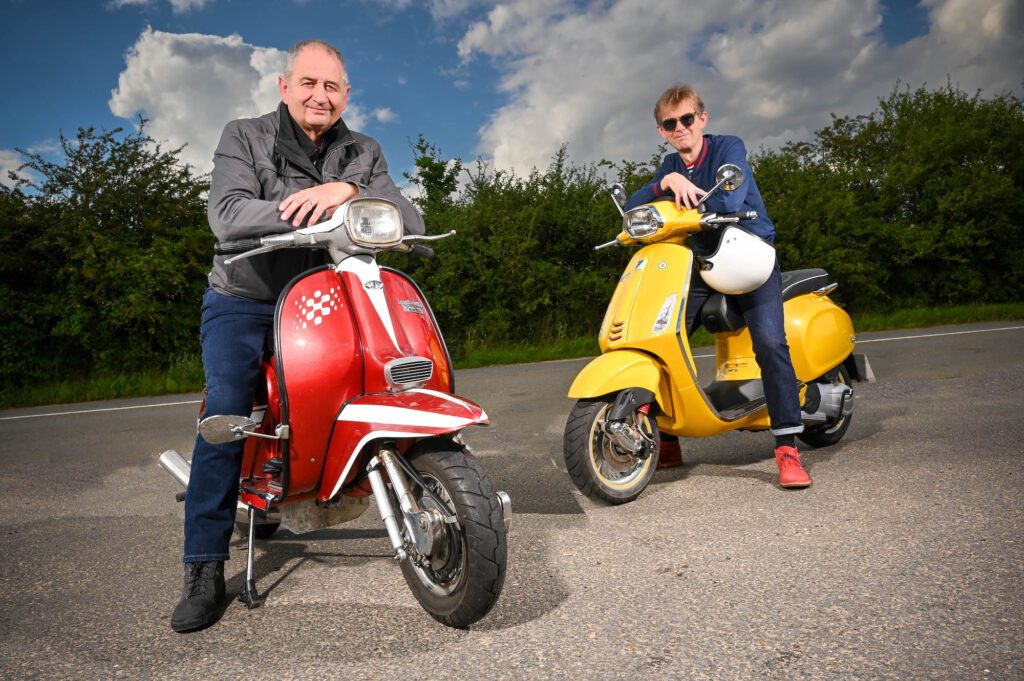
It started with the music, as it so often does.
For Steve Bales, it was ska, two-tone and northern soul, and for his then schoolfriend Stephen Panting, Paul Weller and The Jam.
Both now 56, they were teenagers when the so-called mod revival swept Britain in the late ‘70s, in part thanks to Weller and the 1978 movie Quadrophenia, which told the story of troubled ‘60s mod Jimmy.
If the music was an essential ingredient, so too were the scooters – the Lambrettas and Vespas that came to epitomise the Italian style of the mod subculture.
Mod revival melting pot
But just as the original modernist movement evolved from style-conscious teenage fans of modern jazz in the late ‘50s to the rock ‘n’ roll of The Who and the Small Faces in the ‘60s, so too the revival became a melting pot of micro-cultures encompassing mods, scooterboys, skinheads and psychobillies as the ‘80s progressed.
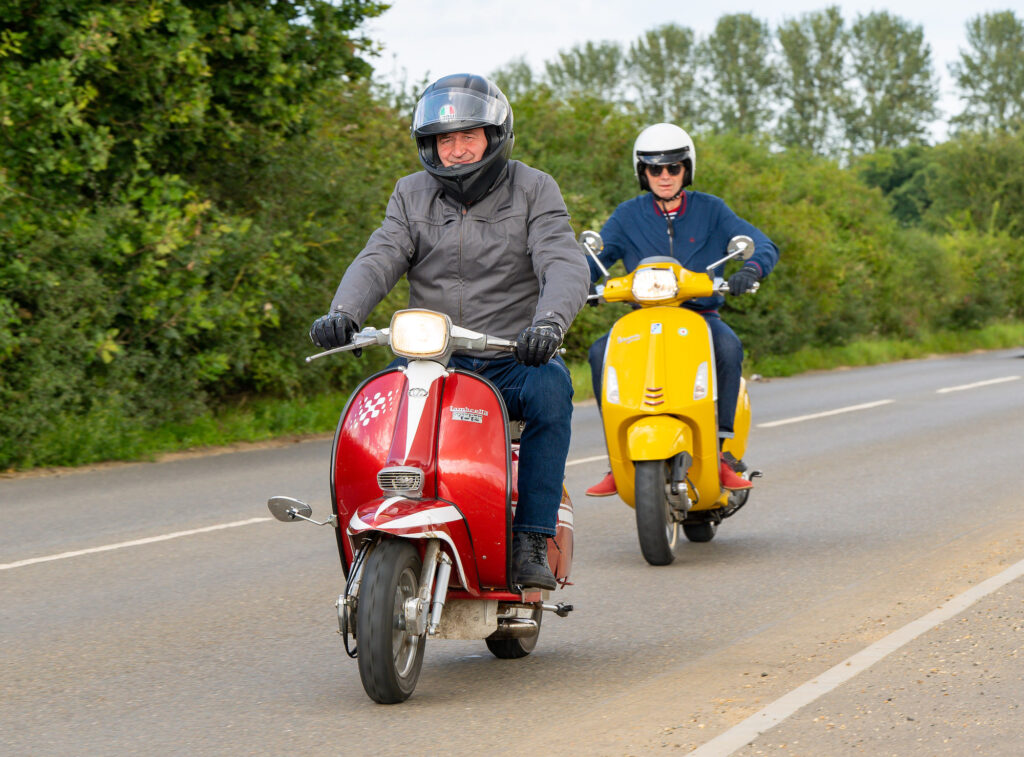
The one constant was, and remains, the scooters.
We’re chatting in Stephen’s home in Norfolk, and the pair are reminiscing about how it all began.
“It started off at the local discos, and the older kids would turn up on Lambrettas and Vespas, so there was that influence,” says Steve. “But the music came first because we weren’t old enough to ride at the time.
“I remember we had some work done at home and a plasterer came in and started lending me old Trojan Records albums, and northern soul and Motown.”
“For me, it was The Jam’s All Mod Cons album, because on the inner sleeve was a picture of a Vespa. You just weren’t going to have anything else,” adds Stephen.
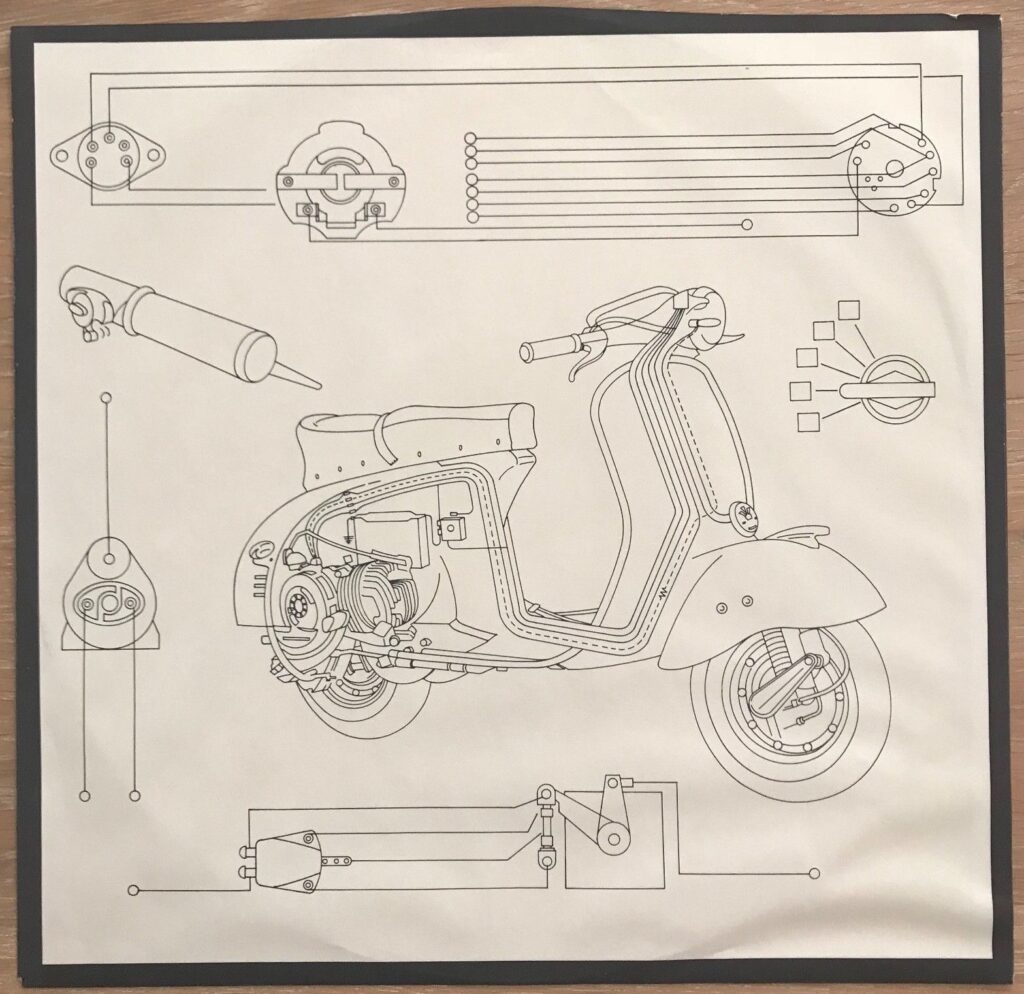 Vespa on the All Mod Cons album inner sleeve
Vespa on the All Mod Cons album inner sleeve
They also had the Great Yarmouth scooter rally on their doorstep, with thousands of scooters riding through their village en route to the seaside resort.
“We took the train on a bank holiday Monday in ‘82, but we didn’t get there until lunchtime and everybody had gone home,” laughs Stephen.
Vespa 50 Special
By December of that year, they both had the only real option for 16-year-olds who wanted a scooter – the Vespa 50 Special.
“I think I had a choice – go on a family holiday or have the money for a scooter, so I took the money option,” says Steve. “It was the best thing I ever did.”
“My birthday wasn’t until March ‘83,” says Stephen, “but I bought mine at Christmas in ‘82 and practised on the bypass when they were building it.
“I used to push it up there and ride it up and down with Steve and another friend. Then on my birthday, March 21, I rode to school.”
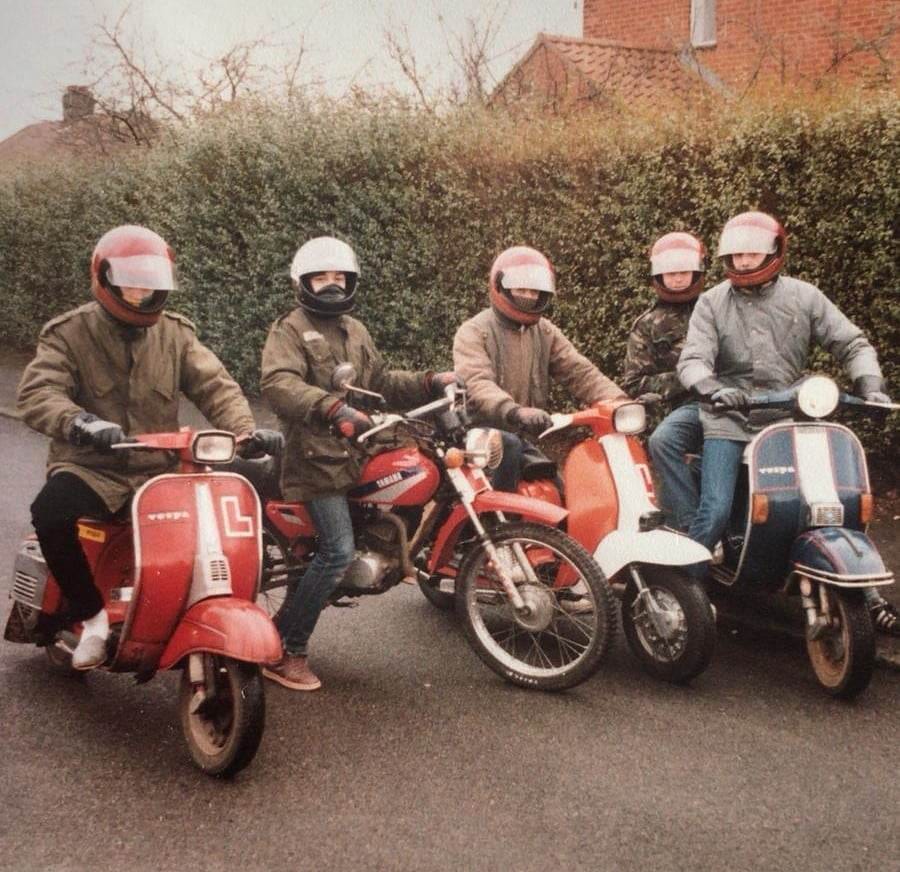 Stephen (left) and Steve (second from right) on their Vespa 50 Specials on March 21, 1983
Stephen (left) and Steve (second from right) on their Vespa 50 Specials on March 21, 1983
“School was always the thing – all the Fizzies and AP50s waiting for you to leave off so they could race you, and obviously it wasn’t much of a competition – until I came along,” smiles Steve.
“Mine was a 50 officially, but I think it was not quite a 50 – they couldn’t really go much more than 28mph, but it went probably 60mph, which was a bit of a surprise for the Fizzy boys.
“It was one of those things – it was like it when I got it, so what am I going to do? I just rode it. AlI I knew was that it was quick, so I assumed it was just derestricted, but it was a pleasant surprise.
“The thing is, no-one could really tell what was underneath because of the panels.”
On regular trips to Yarmouth, he had to keep it slow to stay with the group…
“There was quite a big group of us and I remember on the radio one week there was an announcement about a traffic hold up on the A47 because of ‘a large group of slow moving mopeds’,” he says.
“But we looked pretty cool doing it, didn’t we?” adds Stephen.
Scooter clubs and rallies
The pair were both members of the Norwich Broadsmen Scooter Club, formed in 1957, which had a 50cc section.
“I remember we went to Skegness, at 30mph all the way – it took all day!” laughs Stephen. “There were about a dozen of us I think, no AA, no mobile phones – I didn’t even tell my parents.”
It was the start of several years of travelling the length and breadth of the country among the hoards of scooterists attending rallies organised by the nation’s scooter clubs.
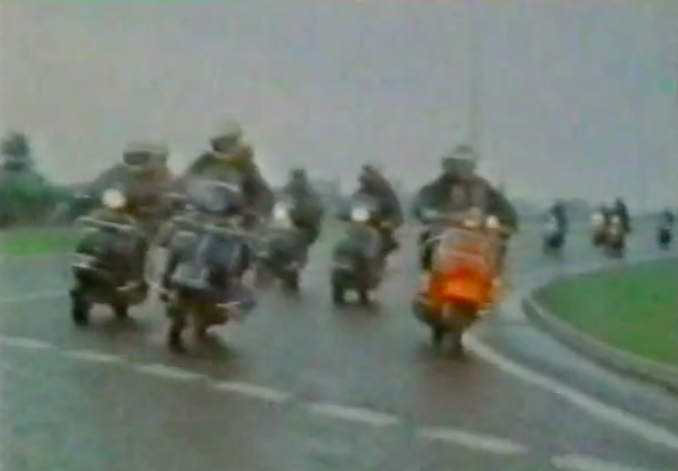 Broadsmen on their way to Great Yarmouth on a wet day in ’83
Broadsmen on their way to Great Yarmouth on a wet day in ’83
Some still wore the army parkas beloved of ‘60s mods, with scooters adorned with multiple mirrors and other shiny attachments, while others wore flight jackets or Harringtons over Fred Perry t-shirts, with an increase in the number of modified scooters and artwork on the panels.
Having turned 17, Steve and Stephen progressed to 125cc machines – a ‘70 Lambretta GP125 and Vespa PX125 respectively.
“I was kind of in the minority at that time, most people stuck with Vespas,” says Steve. “They were more reliable, but when I was at school before I had a scooter I remember seeing the Dyrospeed, a dealer special Lambretta, and when I saw the paint and design I used to sit and sketch it all the time.
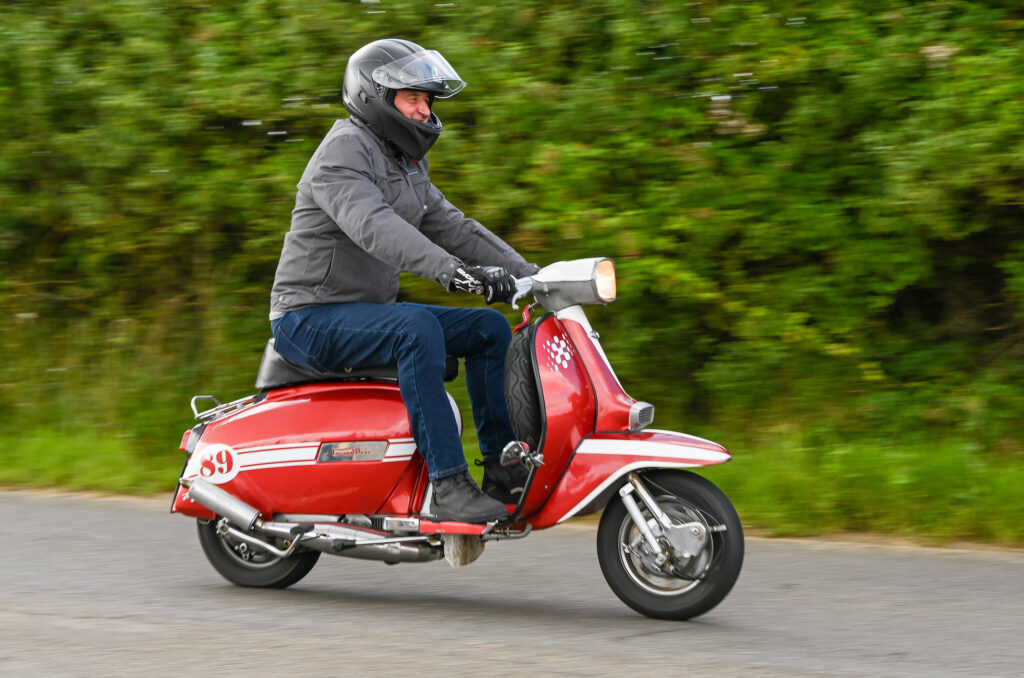 Steve on one of his current Lambrettas
Steve on one of his current Lambrettas
“I always had it in my mind I wanted a Dyrospeed, which I couldn’t afford, so I just bought a GP125 that I think was a 150 inside – but it wasn’t very quick.
“I used it every day, scraping the snow off it in winter to go to work. In my first job I was making false teeth, and I used it to deliver teeth to all the dentists in Norwich, and sometimes to Yarmouth.”
Stephen has remained faithful to Vespa, barring one brief flirtation with a Lambretta GP150.
Unreliable Lambretta
“I went to Colwyn Bay on it, and fell off at a roundabout in Norwich on the way,” he says. “It just took forever because it kept breaking down.
“It was a nightmare, and when I got back I sold it and got another Vespa. It wasn’t for me – I love riding scooters, and looking at them, but I’m not like Steve is, getting his hands dirty all the time. “I’ll clean it and do the spark plug but I don’t really want to be in a layby with the crankcase in half. That isn’t me, and you need to be if you’re a Lambretta owner. Luckily the geezer on the back that day was a Lambretta owner, and he knew his way around it.”
“There’s a sense of achievement when you get anywhere,” smiles Steve. “And quite often, if a Lambretta breaks down, there’s a whole swarm of people descending on it who all know them inside out and they all can’t wait to get in there and fix it for whoever’s broken down.”
As teenagers, Steve says they were “out on the scooters pretty much every night of the week at a pub or a club”, as well as meeting up during the day at weekends at regular city haunts.
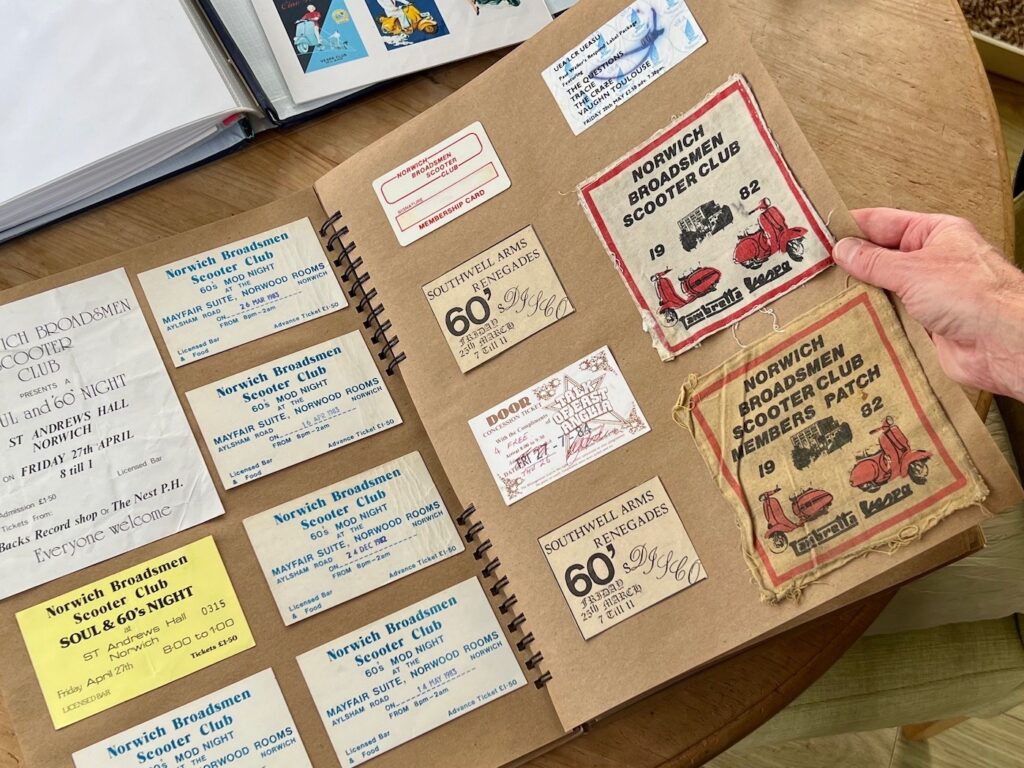 Some of Stephen’s memorabilia from the ’80s
Some of Stephen’s memorabilia from the ’80s
“I remember we used to park in the car park beneath the police station because somehow we knew the code, which was probably not the wisest thing,” laughs Steve, “because we’d then go and ride off down Exchange Street and we all got stopped one night, possibly because I had a bloody noisy baffle-less exhaust on.”
Before our chat, the pair had been discussing what they remembered from the dozens of scooter rallies they attended – and the truth is, not a huge amount.
If you were there, you might not remember it
“We’d ride there, and I always enjoyed riding there and back the most – I still do – and you’d get rid of the scooter, start drinking or whatever, and then…it gets hazy,” says Steve.
Destinations included the Isle of Wight, Skegness, Morecambe Bay, Dunbar on the east coast of Scotland, and later more inland venues including Doncaster, Donington and Newark.
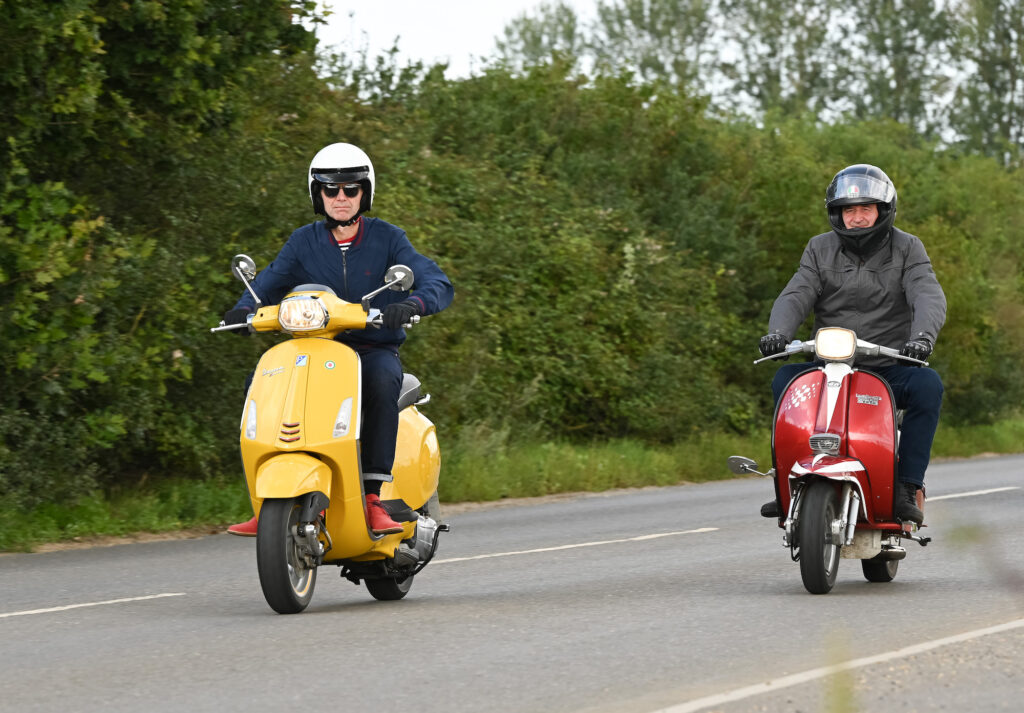 Still riding…
Still riding…
“Dunbar was a really long way,” says Stephen, “but it was all part of the fun – you didn’t really think about it, it was an adventure. I remember sleeping outside a petrol station.”
“Thinking back, we had no phones, not a lot of money, and we just used to get home on a Friday, and we’d go to Newquay, or the Isle of Wight, Morecambe, or Torquay,” adds Steve.
“We just had no fear I guess, or no sense. But I don’t think I ever had a big problem that stopped me getting there or back.”
While some clubs had support vans, Steve and Stephen preferred to ride with their mates in a smaller group, and he only recalls calling on the AA once.
“We’d been to Redcar and we’d had all our stuff nicked from our tent,” he remembers. “They nicked our helmets and we needed to go home on the Sunday.
“I phoned the AA and told them what had happened, and they couldn’t find a retailer that was open because nothing opened on a Sunday back then. So they had to take us back on a Relay, and the scooter wasn’t even broken.”
As 17-year-olds riding on L-plates, “trimmed down to make them a little less L-platish”, says Steve, some of the rally destinations presented a problem: motorways.
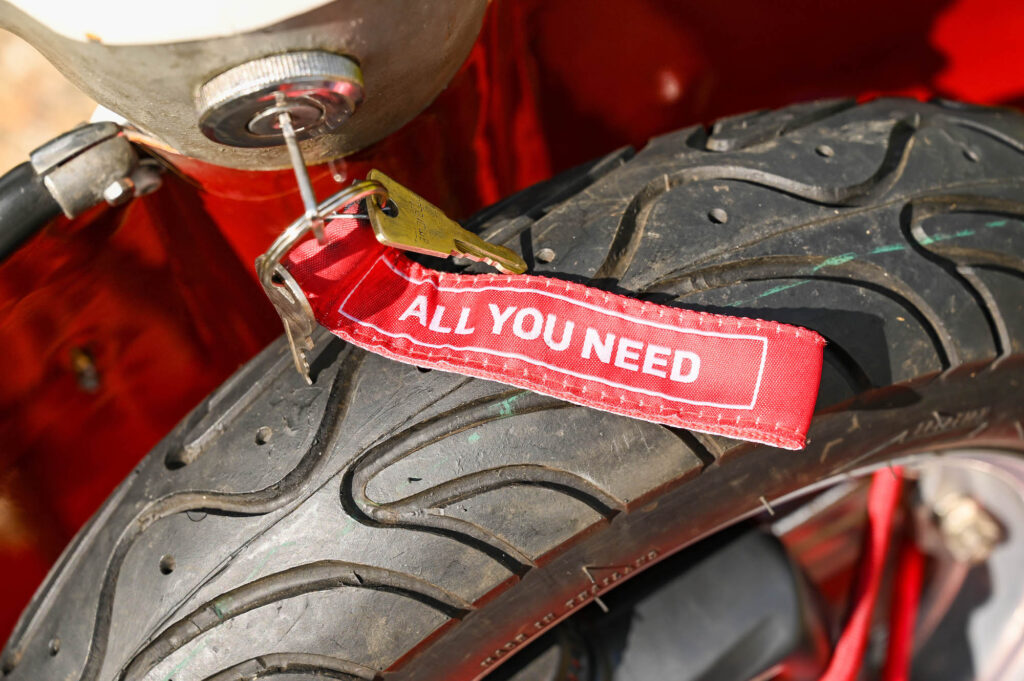 All you need? It was at the time.
All you need? It was at the time.
The simplest solution was simply to remove the L-plates, which came with its own risks.
On the motorway coming back from Torquay, Steve’s Lambretta had been left behind by the quicker Vespas – to his own good fortune.
“We all got pulled over,” says Stephen. “I’d put my L-plates in my toolbox, but my tax disc wasn’t showing – and that was also in the toolbox.
“I opened the toolbox and the L-plates flew out on the motorway. I got away with it though – I can’t remember what was said, he just gave me a producer I think, and then I used someone else’s licence at the police station.” No photo driving licences in those days…
Scooters versus the police
“If there were a lot of you riding around in a group you were sitting ducks for getting pulled over and checked,” says Steve. “At Yarmouth they used to have a roadblock and pull everybody in.
“There used to be a few tense times when you were stuck in that queue trying to sneak through.
“I have heard where the same person’s licence was used several times, so you’d want to be the first one at the police station on the Monday morning!
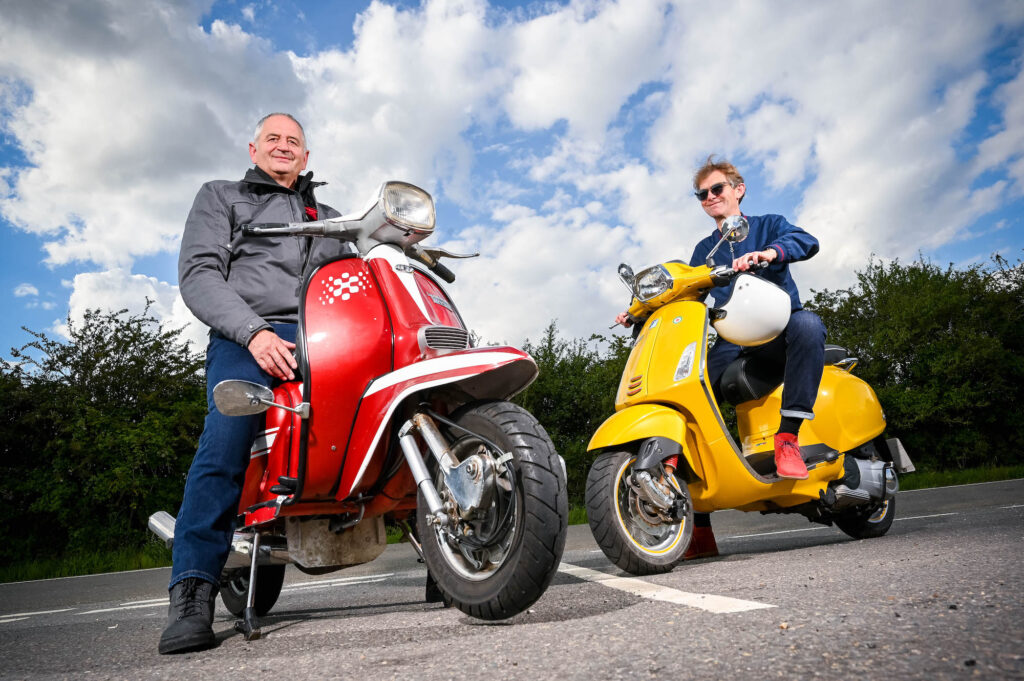 No L-plates required these days
No L-plates required these days
“That’s one of the big things that’s changed for me riding now. When I first started I was always looking over my shoulder when I saw a police car.
“Now you’re fully legal, and fully responsible, to start with I’d think ‘oh, there’s police’, but they’re not interested in you anymore because you’re an old man riding a Lambretta.”
Through the early to mid ‘80s, the scooter rally scene underwent a subtle shift, with separate mod rallies to places like Clacton and Lowestoft splintering off from the main national rally calendar.
Isle of Wight riot
“The national rallies became a little bit more right wing, with skinheads turning up – people who weren’t really into the scooters, or the music probably, and just came for trouble, which is what happened at the Isle of Wight and it ended up in a riot,” says Steve, who was there when it all kicked off in 1986.
“I remember King Kurt were playing, there was an issue with the price of the beer, and generally a group who were there to start trouble.
“The beer tent got set alight and people started stealing stuff, and it just ended up as a bit of a riot. I can’t remember too much about it.”
“By the time that happened, there were people arriving in vans and cars,” adds Stephen. “They were there for something else, not necessarily about the scooters or music, just to get pissed and possibly start trouble.
“That’s when the mods started up their own rallies.”
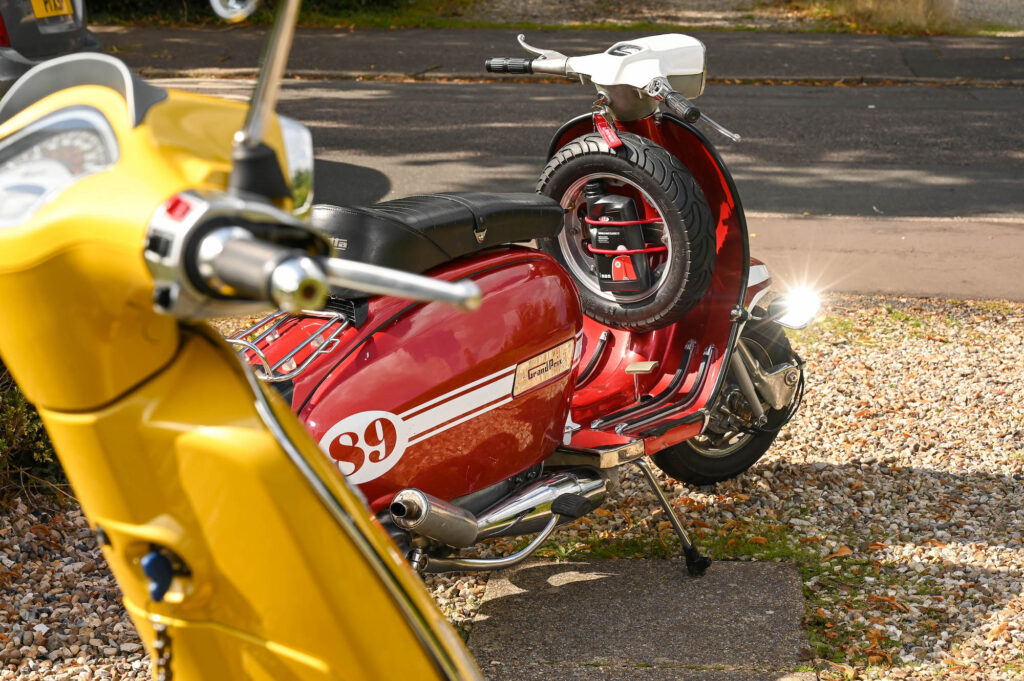
Come the late ‘80s and early ‘90s, Steve and Stephen suffered the same fate as all of us – growing up.
“I got engaged, married eventually, and totally dropped out of it for many years,” says Steve. “Buy a house, get a mortgage, all the things normal people do – your priorities change a bit.
“I pretty much gave the GP away, which is a nightmare when you think back – but a lot of people did because they didn’t have any real value then.”
“The last rally I did was Margate ‘89,” adds Stephen. “I then worked abroad as a holiday rep for a couple of years and left my scooter with my parents, and it was still there when I came back.
“I hadn’t passed my driving test then, so I came back and used that. I’ve never really been without a scooter and have always used them for getting to work.”
Back into the scooter scene
It was in the early 2000s that Steve got back into the scooter scene.
“I don’t think you ever really get out of it,” he says “if you hear the music or smell some two-stroke, you think ‘I want to get a scooter again’.
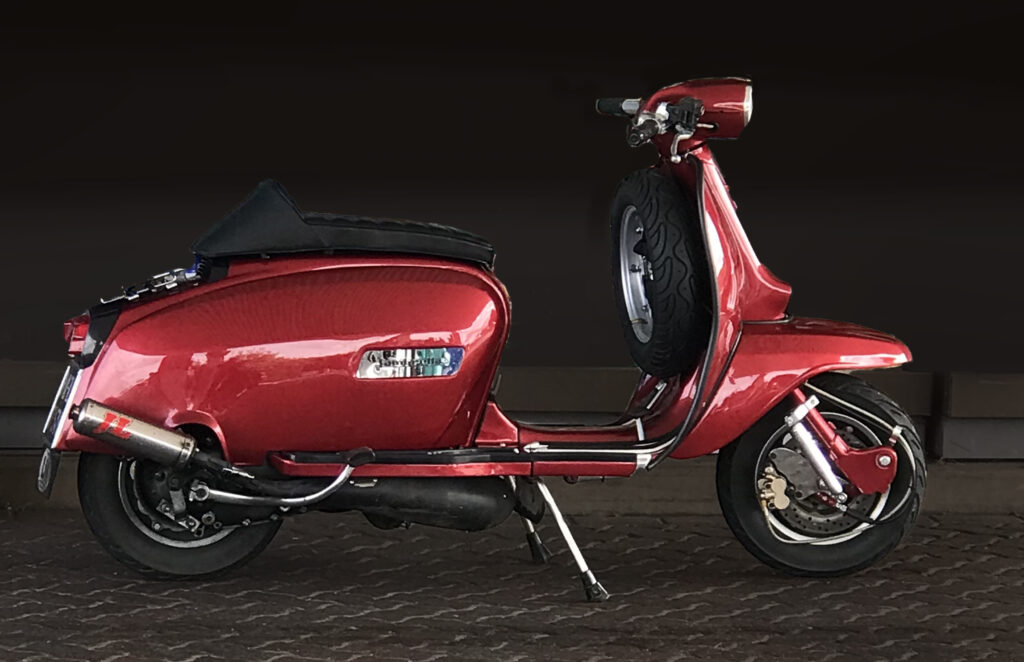 The DL150 that got Steve back into the scene
The DL150 that got Steve back into the scene
“I was in a hotel working away somewhere and something had triggered it, I don’t know what, and the next minute I’m searching online for scooters and I found this 1969 Italian DL150, sold in the UK as a GP150, in Ipswich.
“When I was 16 and in Yarmouth, I took a photo of a red, standard GP200, and I just loved it and thought ‘I’m going to have one one day’. This was a 150, not a 200, but it was exactly the same colours and everything, so I bought that, and got right back into it.
“I went to town a bit on the engine, so it’s very quick, but not always reliable.”
Which brings us on to the two, very different scooters parked outside – Steve’s Indian 1975 Lambretta GP200, and Stephen’s 2016 Vespa Primavera 125 Sprint.
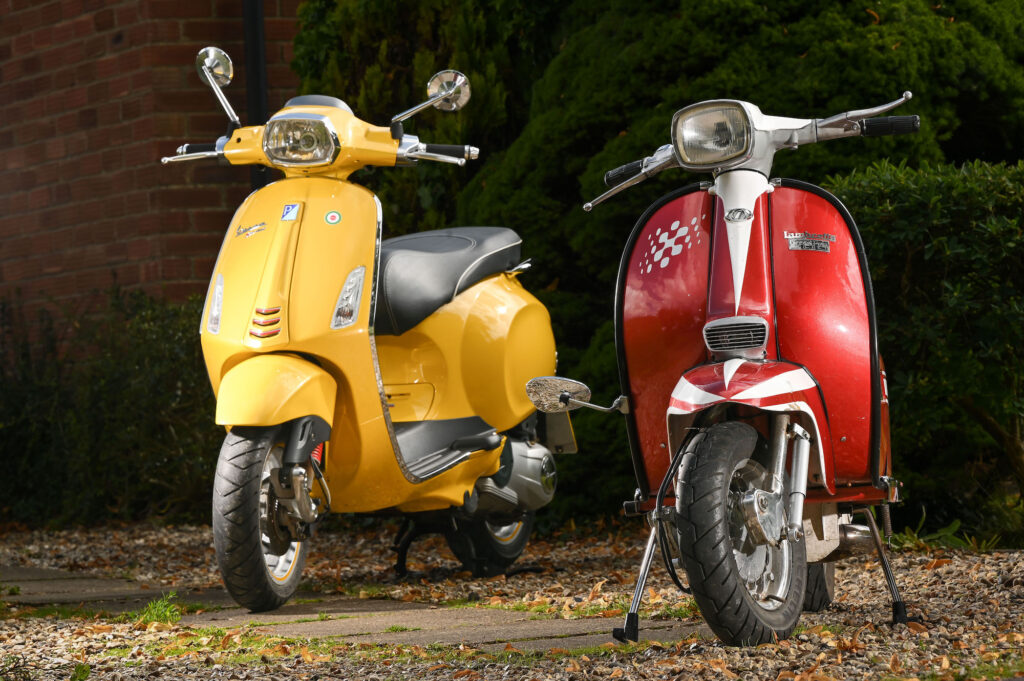
The GP200 is effectively a back-up scooter to the heavily tuned and therefore less-than-reliable Italian GP/DL150.
“It was six or seven years ago and I wanted to go to Mersea Island, but I think I had holed a piston on the 150,” says Steve. “I was at work one afternoon thinking ‘what am I going to do?’
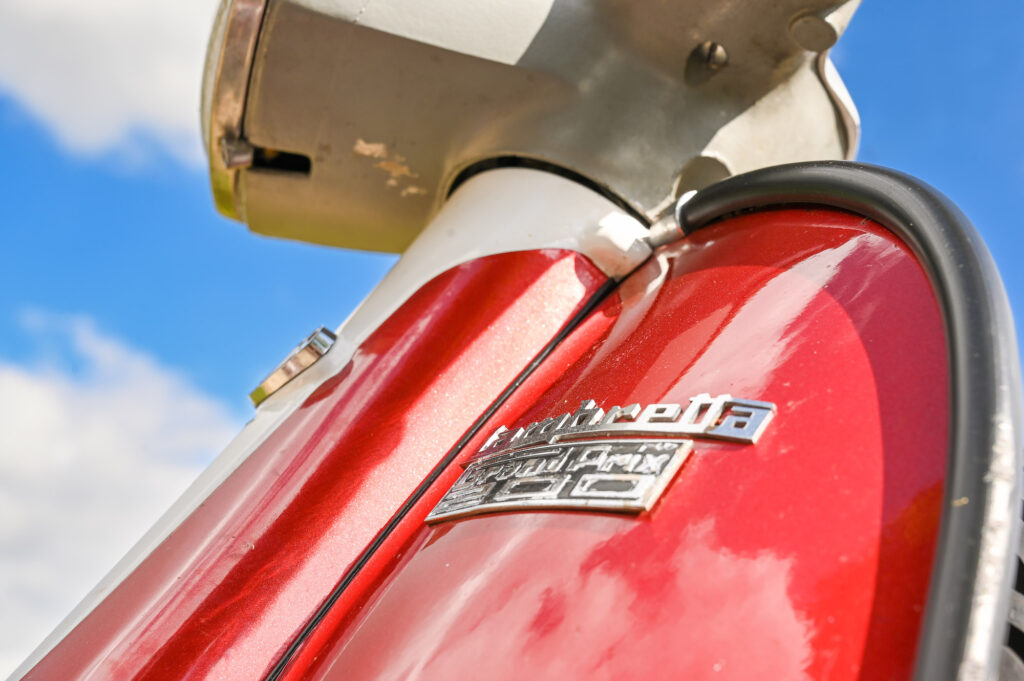
“Then I’m bidding for this Indian scooter on eBay, and I won, but then I thought ‘I’ve got to go home and explain’.
“I got away with it, because my wife and kids had been away and bought a dog that day, which I wasn’t consulted about – so it was a fair deal.
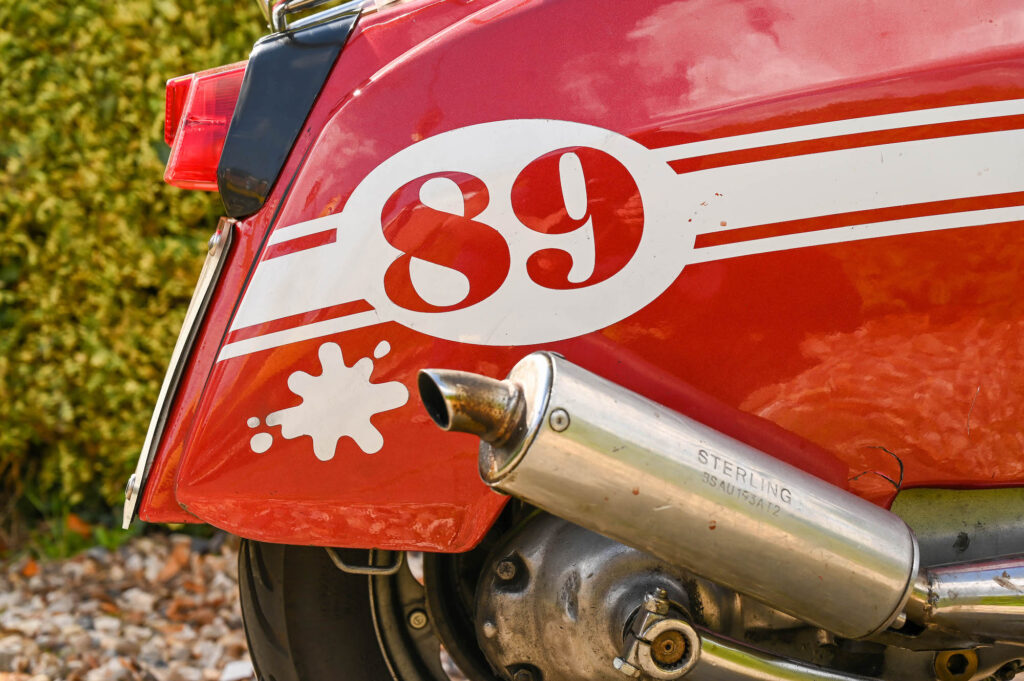
“I’m not attached to it like I am the GP150, but it gets me from A to B if I need it, which is quite a lot because when you start tuning engines they don’t last so long.”
Indeed, the DL150 is once again out of action, which is why the Indian is here…
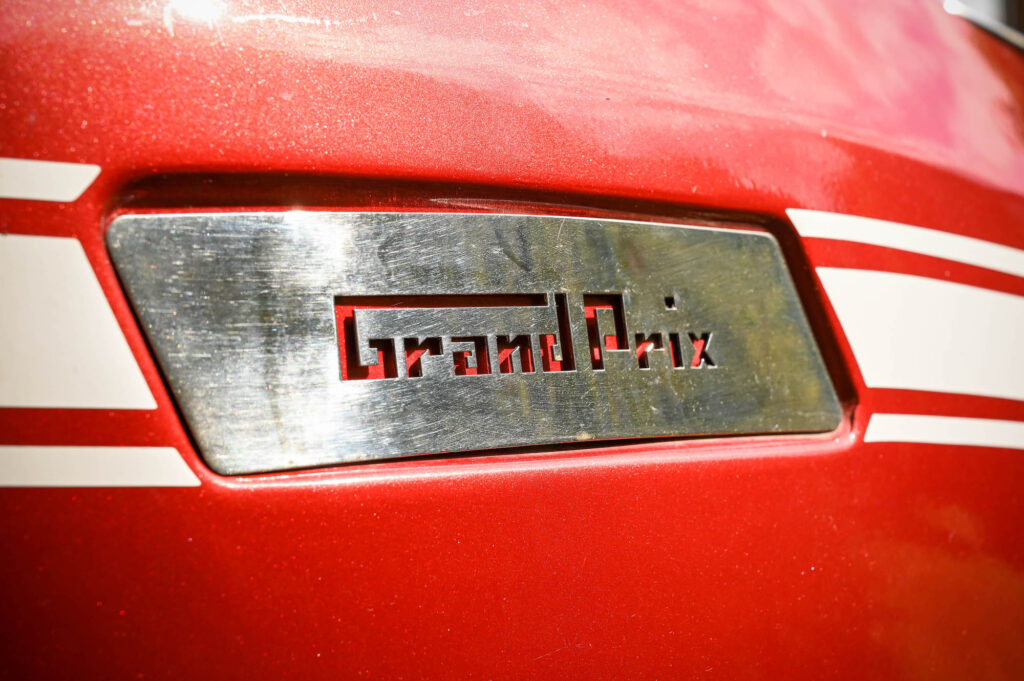
The modern Vespa
While Steve still prefers the classic two-stroke scooters of his youth, Stephen has moved with the times into the modern world of automatic machines.
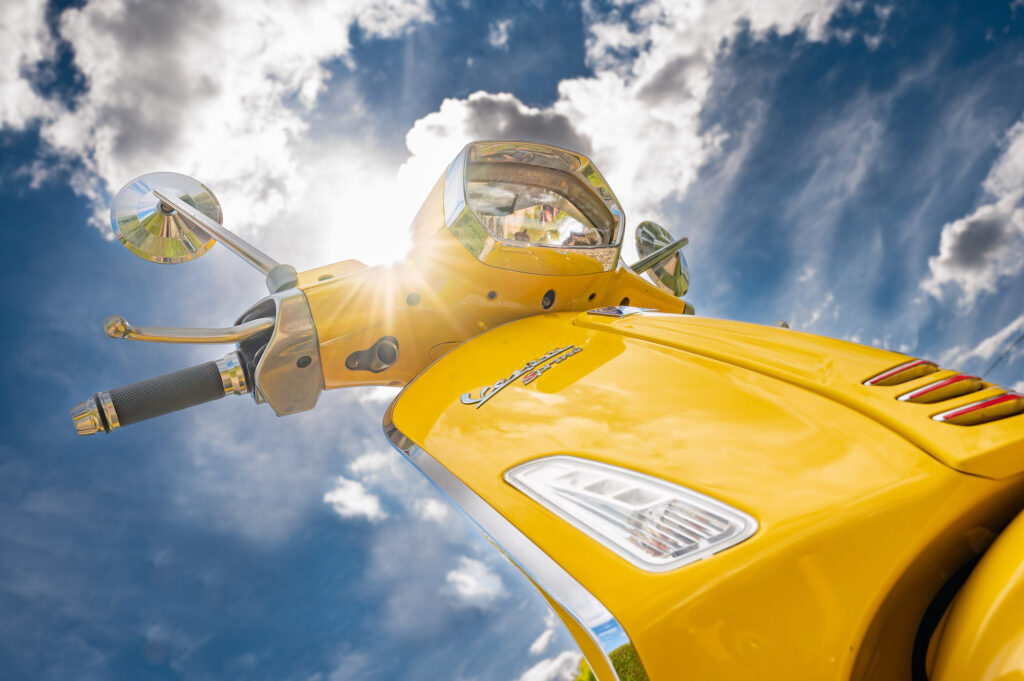
“I’ve been on autos for a while, since maybe 2009,” says Stephen. “There is some snobbery about them, but I don’t buy into that – I just like the look of them.
“For me, as the Vespa has improved I’m happy to go with it, because the integrity of the Vespa is still maintained – it’s still a monocoque metal frame, it has roughly the same shape as it did in the 1950s, and it’s still the ultimate urban transport.
“It’s designed to go down little roads in Italy, and it does that perfectly. You keep your legs dry, and they look pretty cool. I love the old ones as well but I ride this to work every day, so I need to be able to see where I’m going, I need it to stop, I need it to start in the mornings.
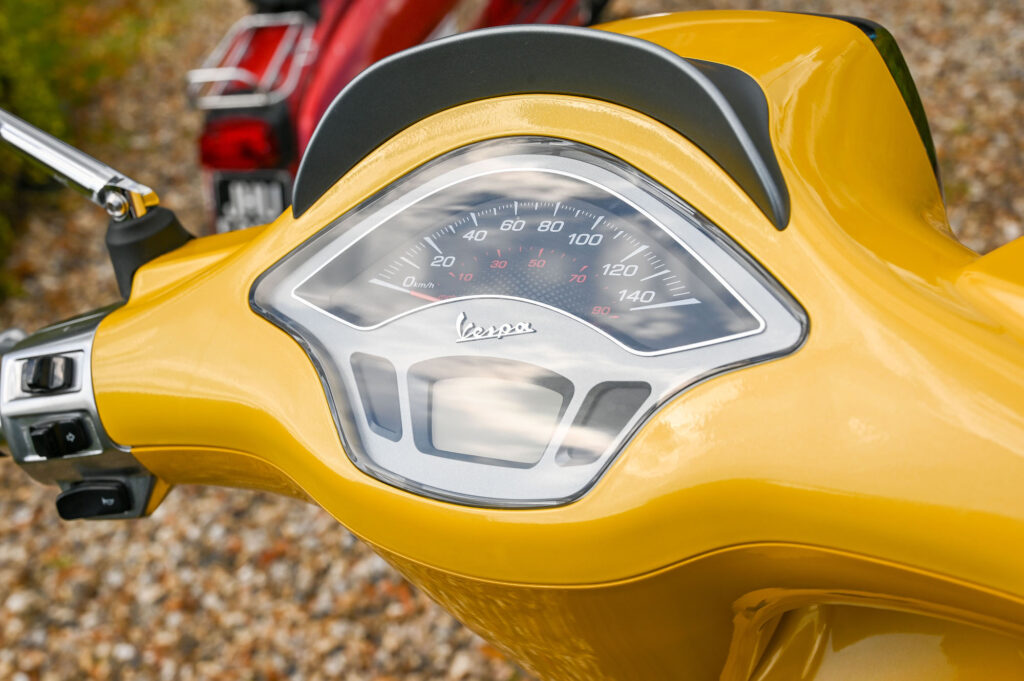
“If you’re going to ride a ‘60s Vespa or Lambretta, that isn’t always going to be the case.”
“While I never really considered myself a mod, you are a mod,” Steve says to Stephen, “and modernists evolved, and evolved, so it makes sense that you would have evolved with the scooters.
“And reliability is also why I bought an auto Royal Alloy GP300 a couple of months ago.”
The Royal Alloy, a modern take based on the classic Lambretta shape, uses the same engine as the Vespa GTS 300, and is now Steve’s back-up to the back-up.
Royal Alloy – the modern Lambretta
“It just looked really good,” he says. “I prefer riding the two stroke, but I bought the Royal Alloy because I go on a ride out every Thursday and do a 100-mile round trip.
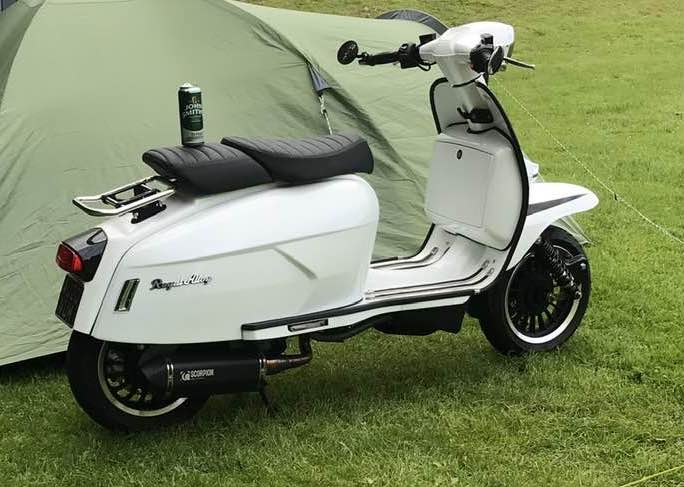 Steve’s Royal Alloy – John Smith’s optional
Steve’s Royal Alloy – John Smith’s optional
“I wanted to have something I can just press a button and go, be sure I’m going to get there and get home, and be able to see the deer, because I live in the middle of nowhere now.”
When Steve bought the GP200 at the turn of the millennium, he discovered that the husband of a friend of his wife’s had lived a parallel existence in the ‘80s as a member of the Thetford Buccaneers Scooter Club.
“We chatted and realised we had this mutual like for scooters, so when I got one and he saw it, he did the same,” he says. “I then started connecting more with people from Thetford and Stowmarket and suddenly there’s this whole network of people who are still riding scooters the same age as me, going to soul nights, and doing all the stuff we were doing. It never went away.
The scooter scene never went away
“To find all these people, get a new social group, find that there’s all these events going on – it’s only the scooters that have opened that up.
“We started going to Mersea Island, which is my favourite rally, Weston-super-Mare, Skegness, and it was a bit like you’d never been away – but everyone was different because everyone was older, and more chilled, and everyone was there for the same reason, with no hostility.
“It doesn’t matter who you are, what you do, or what you’ve got, there’s no judgement, which is nice.”
In recent years, Steve has attended the Euro Lambretta rally, held each summer at a venue across the continent.
“Last year it was in Libramont-Chevigny in the south of Belgium, and I’d only finished rebuilding the DL150 the night before,” he says. “It was a 900-mile round trip and it didn’t miss a beat, but I could have got five miles up the road and it could have blown up.
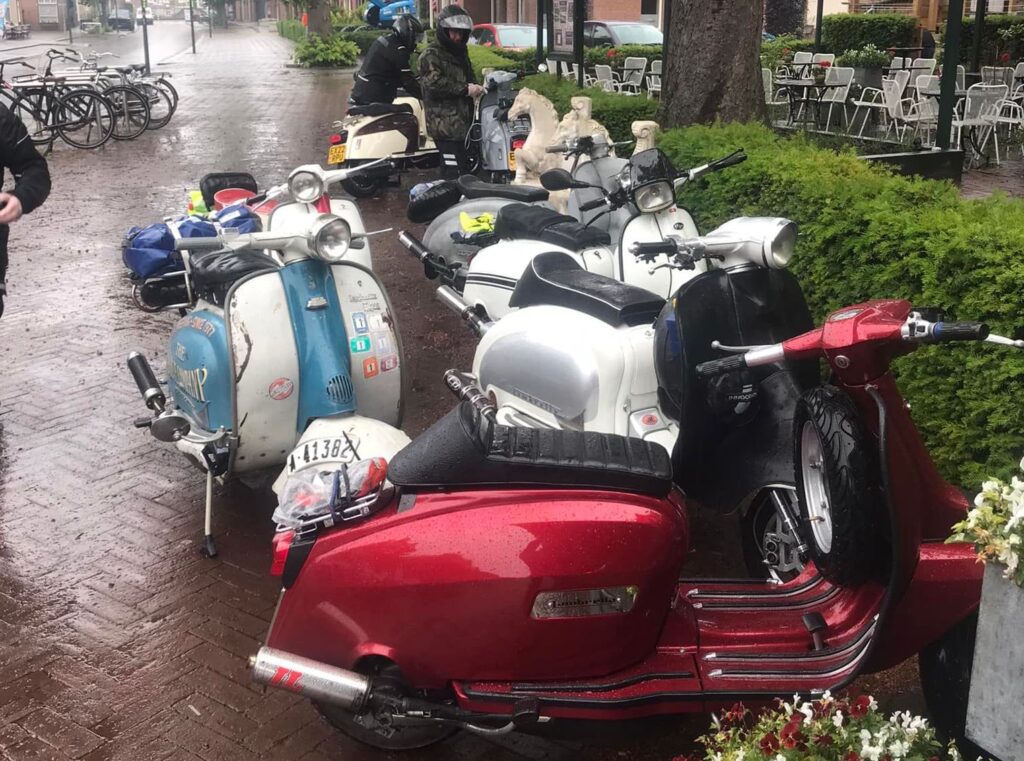 En route to Euro Lambretta
En route to Euro Lambretta
“I enjoy playing around with the engine, and it’s that sense of achievement.”
Stephen is sometimes tempted by the rallies, but restricts his riding to commuting and local events and meet ups.
“I just love riding it around,” he says. “I still maintain every single morning when I get on my scooter to ride to work I feel exactly the same as I did when I was 16 years old.
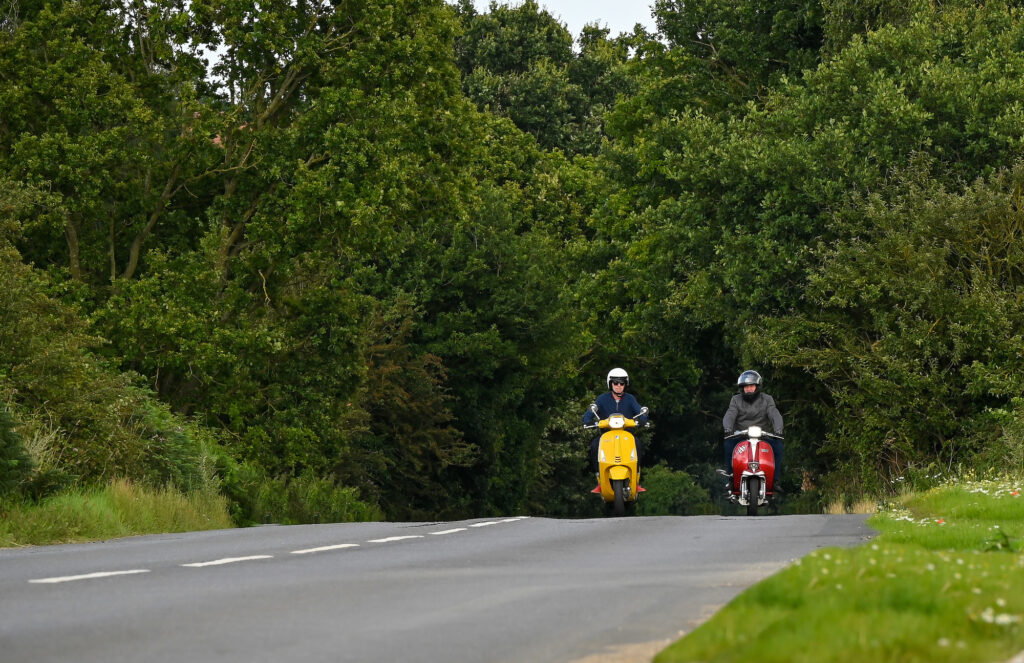
“I don’t ever see myself being without a scooter, because they make perfect sense.”
“It’s an obsession,” says Steve, “and when you ride a scooter, people look. When we go out and they’re all parked up, people stop, take pictures, and take an interest – and I don’t think that’s the same with a group of motorbikes. There’s something about the style and the design.”
A way of life? You bet.
Scooter stories is a series of articles exploring the lives and experiences of different types of scooter riders and collectors. More stories will be added in the coming months. Click on the Scooter Stories category link to read more.
